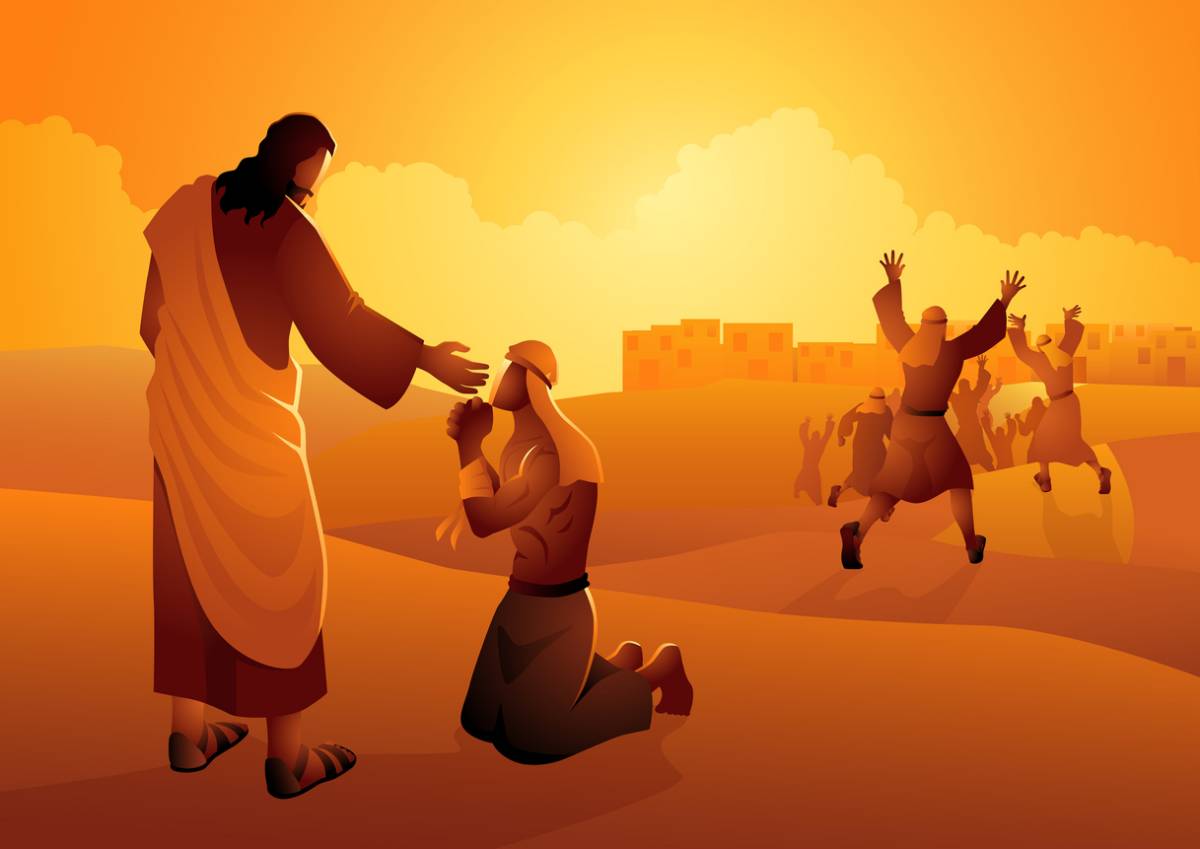Who is the Leper?
The life of one so afflicted would have been one of great loneliness, physical, and mental suffering.
We encounter a very poignant scene of healing and reconciliation in Luke’s Gospel. It begins with these words: “It happened that there was a man full of leprosy in one of the towns where Jesus was…(Lk. 5: 12). In the 21st Century, most of us have never known anyone who suffered from this terrible disease. It is pretty much a disease of the past. Though it still exists, it is easily treated in our times. As a result, we do not have the sense of horror that the Jews of Jesus’ time had for those who suffered from this disease.

According to the Law of Moses, a leper had to be socially ostracized, and driven out of the community. This was at a time when one was completely and intimately dependent on the support of one’s family. There were no social institutions set up to care for people like a leper. The law also stated that if one was found to have leprosy, that person would have to shout out, ‘Unclean, unclean!’ to warn others away as they drew near. The thought of touching a leper, or being around a leper would raise feelings of mortal fear and disgust. If one touched a leper, even by accident, one would have to segregate oneself away from others and undergo a detailed cleansing process before entering into social contact again. The life of one so afflicted would have been one of great loneliness, physical, and mental suffering.

This scene then is remarkable for several reasons. We can imagine that the leper is driven by an intense, even desperate desire and hope that this man called Jesus could heal him. He rushes up and falls prostrate in front of Jesus. We can imagine the crowd pulling away in fear and disgust, leaving Jesus and the leper alone in the widening circle. And we hear the leper’s fervent plea, “Lord, if you wish, you can make me clean” (v. 12). Then Jesus did the unimaginable, he reached out his hand and ‘touched him’. Then we hear Jesus say, “I do will it. Be made clean” (v. 13). Then, according to the Law of Moses, Jesus tells the man to go show himself to the priest and make the sacrificial offering prescribed by the law as proof of his healing.

As Christians, we know that the healing miracles of Jesus have deeper levels of meaning for us. It is a physical healing that we see, that is for sure, but what is its deeper message for us now 2,025 years later? We all have been deformed and debilitated by the devastating consequences of our sins. We have experienced how they damage, and even destroy our relationships, and how they alienate us from our friends, family, society, and God. We all have experienced the inner pain of a guilty conscience as a result of our sins. But God, moved by his infinite love and compassion toward us, sent his only Son to become man, to take on all of the consequences of our sins and bear them on his own body on the Cross. When we, in the desperation of our sinfulness, our leprosy, prostrate ourselves before him, he reaches out and ‘touches’ us with His healing forgiveness. Who is the leper? I am. We all are.

All too often, though, we find it difficult to place ourselves before Jesus in the way that this leper does. We may think ourselves unworthy, but Jesus has made us worthy by willingly shedding his blood for us on the Cross. We are all in need of his healing. It has been so since The Fall. As the psalmist puts it, “Some were sick on account of their sins/ and afflicted on account of their guilt” (Ps. 107). Our sins are our leprosy. But we can take heart in the healing grace of God, as the leper in this passage from Luke’s Gospel did, because Jesus paid the price of mercy, forgiving us with his blood on the Cross. We can approach Jesus in our sins with confidence if we humbly seek his healing grace. As it says in Hebrews: “Let us then with confidence draw near to the throne of grace that we may receive mercy and find grace to help us in our times of need” (Heb. 4:16). Thanks be to God!
SKM: below-content placeholderWhizzco for FHB

